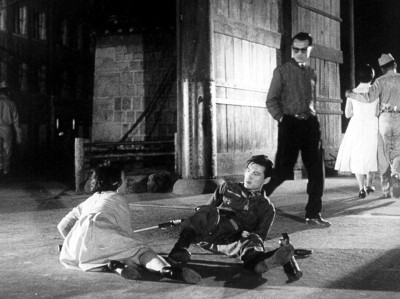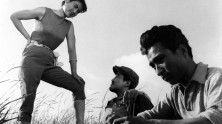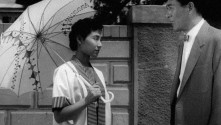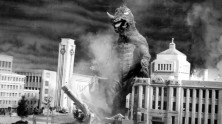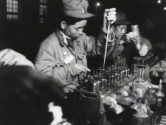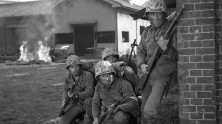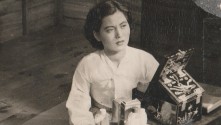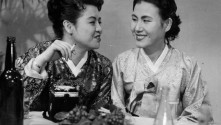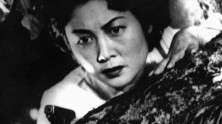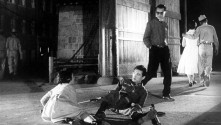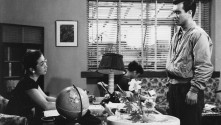
The Marines Who Never Returned
(Tora oji annun haebyong)
With Ch'ang Tong-hwi, Ch'oe Mu-ryong, Ku Pong-so.
South Korea, 1965, DCP, color, 110 min.
Korean with English subtitles.
DCP source: Korean Film Archive
The best modifier for Lee Man-hee’s filmography is humanist. Throughout his versatile artistic trajectory covering war, melodrama, thriller and “Literary Art Film” (munye yonghwa), Lee delved into humans’ multilayered states of mind and therein problematized the dehumanizing nature of the Cold War binary. The Marines Who Never Returned is in this vein Lee’s most iconic work.
Under the label of “anticommunist film” depicting major battles such as the Battle of Incheon and the Third Battle of Seoul, the film won an unprecedented level of support from the Korean Marine Corps, including hundreds of marines as extras, tanks, explosives and firearms loaded with live ammunition. And yet, the film’s actual focal point is the power of humanity, which brings together soldiers and an orphaned girl, and the soldiers’ skyrocketing skepticism about war as they endure fierce battles. While the film does present spectacular combat scenes powered by real weapons, they do not neatly converge into the anticommunist rhetoric. Rather, such spectacles are often followed by soldiers’ questioning the meaning of war.
This ambivalence also leads to problematizing the boundary of the “nation state” promoted under the Cold War bloc. The fact that the primary enemies shown in the film are the Chinese forces, instead of the North Korean People’s Army, touches upon the conflicted conceptualization of the “nation” under the ROK-US alliance that sought to exclude its North Korean counterpart. After this film, Lee continued his criticism of the Korean War and its legacy, suffering from Park Chung-hee regime’s anticommunist censorship system, which labeled his 1965 film The Seven Female POWs anti-state.
